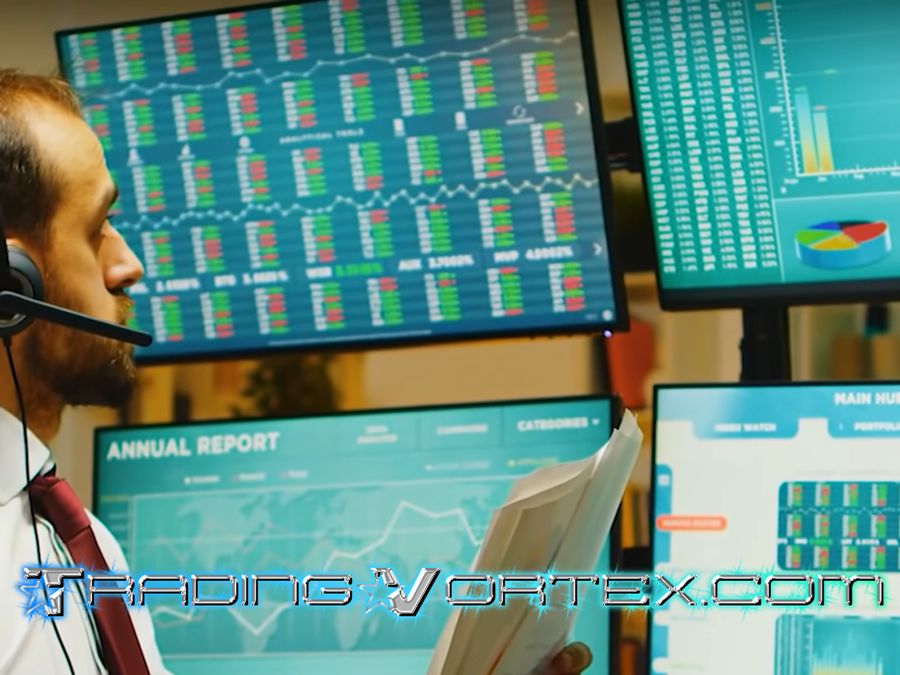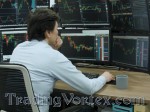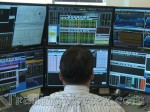Table Of Contents:
- Common Forex News Trading Errors:
Case Studies of Forex News Trading Errors:
The Impact of Psychological Biases:
Effective Strategies for Forex News Trading:
Case Studies of Successful Forex News Trading:
Tools and Resources for Forex News Traders:
Tips for Developing Discipline and Patience:
Risk Mitigation Strategies:
Learning from Your Mistakes:
Conclusion:
Common Forex News Trading Errors:
Forex news trading is a high-stakes endeavor that demands precision, discipline, and a clear understanding of the market dynamics. Unfortunately, many traders fall victim to a range of common errors that can significantly hinder their success. In this section, we will dissect these errors in detail, shedding light on the reasons behind them and the potential consequences they can have on your trading journey.
Overtrading: The Peril of Impulsive Reactions.
- Description: Overtrading is a pervasive issue in Forex news trading, driven by the allure of quick profits and the fear of missing out on market movements. It occurs when traders open too many positions or allocate too much capital without a solid rationale, often in response to news events.
- Consequences: Overtrading can deplete your account balance rapidly. It increases the risk of significant losses and leaves you vulnerable to market volatility. Emotional stress and burnout are also common outcomes of overtrading.
- Solution: Practice disciplined risk management, set clear trading plans, and limit the number of positions you open simultaneously. Focus on high-impact events with a well-thought-out strategy rather than reacting impulsively to every news release.
Ignoring Risk Management: A Costly Oversight.
- Description: Neglecting risk management principles is a grave mistake in Forex news trading. This error manifests in various ways, such as not setting stop-loss orders, failing to diversify your portfolio, or risking a large portion of your capital on a single trade.
- Consequences: Without proper risk management, your trading account is vulnerable to catastrophic losses. One significant adverse move can wipe out a substantial portion of your capital, making it difficult to recover.
- Solution: Implement robust risk management techniques, including setting stop-loss orders, diversifying your portfolio, and adhering to a risk-reward ratio that aligns with your trading strategy. Always protect your capital to ensure longevity in the market.
Lack of Fundamental Analysis: The Foundation of News Trading.
- Description: Some traders make the mistake of neglecting fundamental analysis when engaging in Forex news trading. They may focus solely on technical analysis or rely on instinct rather than understanding the economic factors driving market movements.
- Consequences: Ignoring fundamental analysis can lead to misinterpretation of news events and their impact on currency pairs. Without a solid grasp of economic indicators and their implications, traders risk making misguided trading decisions.
- Solution: Develop a strong foundation in fundamental analysis. Stay informed about economic calendars, central bank policies, and geopolitical events. Understand how economic data can influence currency markets to make more informed trading choices.
Chasing High-Impact Events: The Allure of Volatility.
- Description: Some traders gravitate towards high-impact news events, assuming that greater volatility equates to better trading opportunities. This can lead to chasing events without a clear strategy.
- Consequences: While high-impact events can offer significant profit potential, they also come with heightened risks. Chasing volatility without a well-defined plan can result in sudden losses and erratic trading behavior.
- Solution: Prioritize quality over quantity when selecting news events to trade. Develop a systematic approach that includes criteria for event selection, entry and exit points, and risk management.
Neglecting Technical Analysis: A Comprehensive Approach.
- Description: Overreliance on fundamental analysis alone can be an error in Forex news trading. Neglecting technical analysis can leave traders blind to critical entry and exit points, trend reversals, and support and resistance levels.
- Consequences: Without technical analysis, traders may miss essential price patterns and technical signals, leading to suboptimal trade timing and execution.
- Solution: Combine fundamental and technical analysis to form a comprehensive trading strategy. Use technical tools and indicators to enhance your timing and confirm your fundamental insights.
Emotional Trading: The Enemy of Rational Decision-Making.
- Description: Emotional trading is perhaps the most pervasive and detrimental error in Forex news trading. It occurs when traders let fear, greed, or impatience dictate their decisions, leading to impulsive actions.
- Consequences: Emotional trading can result in losses, inconsistent performance, and a cycle of self-doubt. It can be particularly damaging during high-impact news events when market volatility intensifies emotions.
- Solution: Develop emotional resilience through mindfulness techniques, maintain a trading journal to track emotional triggers, and stick to a well-defined trading plan. Consider using automated trading systems to reduce the influence of emotions.
Understanding these common Forex news trading errors is the first step toward becoming a more successful and disciplined trader. By addressing these pitfalls and implementing the recommended solutions, you can enhance your trading skills and improve your chances of profiting in the dynamic world of Forex news trading.
Case Studies of Forex News Trading Errors:
Learning from real-life examples can be an invaluable way to understand the common pitfalls of Forex news trading. In this section, we will delve into specific case studies of traders who have encountered costly mistakes in their Forex news trading journeys. These stories serve as cautionary tales and provide valuable insights into the challenges that traders can face when navigating the world of Forex news.
Real-Life Examples of Costly Mistakes:
Case Study 1: The Impulsive Trader.
John, an aspiring Forex trader, was monitoring a high-impact news event related to a major central bank's interest rate decision. He had done minimal research and relied solely on the expectation of a rate hike. When the news was released, the central bank surprised the market by keeping rates unchanged. In a panic, John executed a massive buy order, believing the currency would surge. However, the market reacted differently, and the currency plummeted. John had not set a stop-loss order and watched helplessly as his account balance dwindled. This impulsive reaction cost him a significant portion of his capital.
Lesson Learned: John's impulsive trading behavior and lack of a well-thought-out strategy led to significant losses. Traders must conduct thorough research, have a clear plan in place, and utilize risk management tools like stop-loss orders to avoid such costly mistakes.
Case Study 2: The Overconfident Trader.
Sarah had been successfully trading Forex news events for several months, primarily focusing on economic releases from a particular country. She had a string of profitable trades and felt invincible. One day, a geopolitical crisis in that country led to a sharp decline in its currency. Overconfident in her ability to predict the market, Sarah went all-in on a long position, convinced that the currency would recover swiftly. However, the crisis deepened, and the currency continued to plummet, wiping out all her previous gains and more.
Lesson Learned: Sarah's overconfidence led to a lack of diversification and a substantial loss. Traders should remain humble and avoid putting all their capital into a single trade. Diversification and risk management are essential even for experienced traders.
Lessons Learned from Trader Experiences:
These case studies highlight some common themes and lessons that can benefit all Forex news traders:
- Preparation is Key: Both traders in the case studies lacked proper preparation. Forex news trading requires thorough research, understanding of market sentiment, and a well-defined trading plan. Rushing into a trade without adequate preparation can lead to significant losses.
- Risk Management is Non-Negotiable: Not setting stop-loss orders was a critical mistake in both cases. It's a reminder of the importance of risk management in protecting your trading capital.
- Overconfidence Can Be Detrimental: Overconfidence can lead traders to ignore diversification and proper risk assessment. Maintaining a realistic and humble perspective is crucial for consistent success.
- Emotions Play a Significant Role: Emotions, especially panic and overconfidence, played a central role in these mistakes. Traders should develop emotional resilience and discipline to prevent impulsive actions.
The Impact of Psychological Biases:
Forex news trading isn't just a battle against market forces; it's also a constant struggle against the biases and emotions that can cloud judgment. Understanding the psychological aspects of trading is essential because cognitive biases and emotions often underlie the common errors traders make. In this section, we'll explore how psychological biases can affect Forex news trading and how emotions can lead to costly mistakes.
Cognitive Biases in Forex News Trading:
Cognitive biases are systematic patterns of deviation from norm or rationality in judgment, often stemming from heuristic thinking and mental shortcuts. These biases can significantly impact trading decisions in the realm of Forex news trading:
- Confirmation Bias: Traders tend to seek out information that confirms their existing beliefs or biases. In Forex news trading, this can lead to cherry-picking news sources or data that support preconceived notions while ignoring conflicting information. Traders may miss important cues that could alter their trading strategy.
- Overconfidence Bias: Overconfidence can lead traders to overestimate their ability to predict market movements accurately. This can result in larger position sizes, excessive risk-taking, and a lack of humility in the face of uncertainty.
- Anchoring Bias: Traders may fixate on a specific price or economic expectation, often the result of an initial reference point, even when market conditions change. This can lead to delayed reactions or stubborn adherence to a losing trade.
- Recency Bias: This bias involves giving more weight to recent events or information, potentially ignoring longer-term trends. Traders influenced by recency bias may make impulsive decisions based on short-term market movements rather than considering the broader context.
How Emotions Can Lead to Errors?
Emotions play a significant role in Forex news trading and can lead to errors when not managed effectively:
- Fear and Panic: When unexpected news events unfold, fear and panic can grip traders, causing them to abandon their trading plans and make impulsive decisions. This often results in significant losses as traders rush to exit positions.
- Greed: Greed can cause traders to become overzealous, leading to excessive risk-taking. Traders may chase after large profits and ignore risk management principles, which can result in catastrophic losses.
- Frustration and Revenge Trading: Suffering losses can lead to frustration and a desire to recover those losses quickly. This emotional response, known as revenge trading, often results in further losses as traders abandon discipline and rationality.
- Impatience: Impatience can lead traders to enter trades prematurely or exit them too soon. It can also result in overtrading as traders seek constant action in the market.
- Regret Aversion: Fear of making mistakes or experiencing losses can cause traders to hesitate or avoid taking necessary risks. This can lead to missed opportunities and underperformance.
Effective Strategies for Forex News Trading:
While we've discussed the common errors and psychological challenges faced by Forex news traders, it's equally important to explore the strategies and techniques that can lead to success in this dynamic and potentially rewarding endeavor. In this section, we will delve into a range of effective strategies for Forex news trading, encompassing thorough research, risk management, analysis, preparation, and psychological resilience.
Comprehensive Market Research: The First Step.
- Description: Successful Forex news trading begins with comprehensive market research. This involves staying well-informed about global economic developments, geopolitical events, and central bank policies. Traders should be aware of scheduled news releases and their potential impact on currency pairs.
- Benefits: In-depth research enables traders to anticipate market reactions to news events and make informed trading decisions. It provides a solid foundation for crafting a well-thought-out trading strategy.
Risk Management Techniques: Safeguarding Your Capital.
- Description: Effective risk management is a cornerstone of Forex news trading. It involves setting appropriate stop-loss orders, determining position sizes based on risk tolerance, and diversifying your portfolio. Risk management ensures that no single trade can wipe out your entire account.
- Benefits: Implementing risk management techniques protects your capital and ensures longevity in the Forex market. Even if you encounter losses, well-managed risk allows you to continue trading and recover more effectively.
Combining Fundamental and Technical Analysis:
- Description: Combining both fundamental and technical analysis is a powerful strategy in Forex news trading. Fundamental analysis helps you understand the context of news events and their potential impact on currencies, while technical analysis provides crucial entry and exit points and identifies trend reversals.
- Benefits: This holistic approach allows traders to make more well-rounded decisions. Fundamental analysis guides overall strategy, while technical analysis provides precise timing and risk assessment.
Preparing for News Events: Timing and Tools.
- Description: Preparing for news events involves meticulous planning. Traders should be aware of the timing of releases, understand the expected market consensus, and utilize economic calendars and news sources to stay updated. Additionally, having access to fast and reliable execution tools is crucial.
- Benefits: Being well-prepared allows traders to enter and exit positions swiftly when news breaks. This minimizes slippage and maximizes the potential for profitable trades.
Trading Psychology: Staying Calm in Volatile Markets.
- Description: Developing strong emotional resilience is vital for Forex news traders. This entails maintaining discipline, adhering to a trading plan, and staying calm in the face of market volatility. Techniques like mindfulness and journaling can help manage emotions.
- Benefits: A calm and disciplined mindset allows traders to make rational decisions during high-stress news events. It helps prevent impulsive actions driven by fear, greed, or frustration.
Case Studies of Successful Forex News Trading:
While we've explored common errors and effective strategies for Forex news trading, it's equally important to draw inspiration from success stories. In this section, we'll examine case studies of traders who navigated the challenges of Forex news trading successfully. These case studies offer valuable insights into profitable trades and the strategies that led to their success.
Examining Profitable Trades:
Case Study 1: The NFP Surprise.
Alex, an experienced Forex trader, had been closely monitoring the U.S. Non-Farm Payrolls (NFP) release, a high-impact event known for its market-moving potential. He conducted thorough research on employment trends, inflation expectations, and the Federal Reserve's stance on interest rates. Anticipating a positive NFP report, he entered a long position in the U.S. dollar against a currency known for its sensitivity to economic data.
When the NFP report exceeded market expectations, the U.S. dollar surged, and Alex's position moved in his favor. He had set a tight stop-loss order to manage risk and a take-profit level based on his analysis. The trade hit his take-profit level, resulting in a substantial profit.
Analysis: Alex's success can be attributed to his meticulous research, a well-defined trading plan, and effective risk management. By staying informed and being prepared for the NFP release, he capitalized on the market's reaction, emphasizing the importance of combining fundamental analysis with technical precision.
Case Study 2: Geopolitical Developments.
Sara, a Forex trader with a focus on geopolitical events, observed escalating tensions between two major economies. She recognized that this situation could lead to market volatility and identified potential currency pairs that would be impacted the most.
Sara's analysis included monitoring news sources, assessing the economic and political implications of the tensions, and evaluating market sentiment. She decided to go short on the currency of the country facing greater geopolitical pressure.
When the tensions escalated further and diplomatic talks broke down, the currency Sara was shorting experienced a significant decline. She had set a stop-loss order and exited the trade when the price reached a predetermined level, locking in a substantial profit.
Analysis: Sara's success stemmed from her specialization in geopolitical events and her ability to anticipate market reactions to such events. Her in-depth research, risk management, and disciplined execution played pivotal roles in her profitable trade.
Analyzing Strategies that Work:
In these case studies of successful Forex news trading, several key strategies emerge:
- Thorough Research: Both Alex and Sara conducted extensive research, whether on economic indicators or geopolitical developments. Informed trading decisions are often the result of meticulous analysis.
- Well-Defined Plans: Each trader had a clear trading plan, including entry and exit points, stop-loss orders, and take-profit levels. A structured approach minimizes impulsive actions.
- Effective Risk Management: Setting stop-loss orders and adhering to risk-reward ratios helped mitigate potential losses in both cases. Protecting capital is paramount in successful trading.
- Combining Fundamental and Technical Analysis: Both traders employed a holistic approach, combining fundamental insights with technical analysis for precise timing and execution.
- Adaptability: Sara's specialization in geopolitical events illustrates the value of adapting to unique market conditions and seeking opportunities where others might not.
Tools and Resources for Forex News Traders:
Successful Forex news trading not only relies on sound strategies but also on the effective use of tools and resources that provide timely information, facilitate analysis, and enhance trading execution. In this section, we will explore the essential tools and resources that can empower Forex news traders to make informed decisions and navigate the dynamic market landscape.
Online Platforms and News Sources:
Online platforms and news sources serve as the primary channels through which Forex news traders access timely information and analysis. Here's how they contribute to successful trading:
- News Websites and Feeds: Reputable financial news websites and feeds provide up-to-the-minute coverage of economic events, geopolitical developments, and central bank announcements. Traders can subscribe to or follow these sources to stay informed.
- Social Media and Forums: Social media platforms and trading forums offer real-time discussions and insights from other traders. Following experienced traders and participating in relevant communities can provide additional perspectives and news alerts.
- Brokerage Platforms: Many Forex brokers offer built-in news feeds and analysis tools on their trading platforms. These resources can help traders access news while monitoring their positions.
- Mobile Apps: Trading-related mobile apps, including those from news outlets and brokerage firms, enable traders to receive alerts and access information on the go. Mobile apps are especially useful for reacting swiftly to breaking news events.
Economic Calendars and Event Tracking:
Economic calendars and event tracking are indispensable tools for Forex news traders, allowing them to plan their strategies around scheduled news releases:
- Economic Calendars: These calendars list upcoming economic events, such as interest rate decisions, GDP reports, and employment data releases. They provide details about the event, its expected impact on the market, and the scheduled time of release.
- Event Alerts: Some economic calendar tools offer customizable event alerts that notify traders when a significant news release is imminent. These alerts help traders prepare and be in position to execute trades.
- Historical Data: Access to historical data is vital for analyzing the historical market reactions to specific events. It enables traders to assess patterns and tendencies associated with particular economic indicators.
Trading Software and Automation:
Trading software and automation tools enhance a Forex news trader's ability to execute trades swiftly and efficiently:
- Algorithmic Trading Platforms: Advanced trading platforms allow traders to create and implement algorithmic strategies that can automatically execute trades based on predefined conditions. This can be particularly useful for high-frequency news trading.
- Expert Advisors (EAs): EAs are automated trading systems that can be integrated into trading platforms. They can execute trades, manage positions, and even react to news events based on predetermined algorithms.
- Risk Management Tools: Some trading software includes risk management features like setting stop-loss and take-profit orders, which are critical for protecting capital during news events.
- Backtesting and Simulation: Traders can use backtesting and simulation tools to assess the performance of their strategies historically. This helps in fine-tuning strategies before applying them in live trading.
Tips for Developing Discipline and Patience:
Discipline and patience are two indispensable qualities for success in Forex news trading. Developing these traits can help traders avoid impulsive decisions, stick to their trading plans, and remain composed during challenging periods. In this section, we will delve into tips for cultivating discipline and patience in the context of Forex news trading.
Building a Trading Routine:
- Establish a Structured Routine: Creating a daily or weekly trading routine helps instill discipline. Set specific times for research, analysis, and execution. A routine promotes consistency and helps traders stay focused.
- Plan Ahead: Before the trading session, outline your goals, strategy, and potential trades. Knowing what to expect and having a plan in place reduces the likelihood of impulsive decisions.
- Use Checklists: Develop checklists for pre-trade and post-trade activities. This ensures that you follow a systematic approach for every trade, reducing the risk of overlooking critical steps.
- Review and Adjust: Regularly review your trading routine and adapt it as needed. Identifying areas where discipline may be slipping can help you make necessary adjustments.
Avoiding Impulsive Decisions:
- Set Clear Criteria: Establish predefined criteria for entering and exiting trades. Avoid deviating from these criteria, no matter how tempting an opportunity may seem. This prevents impulsive actions.
- Utilize Limit Orders: Whenever possible, use limit orders rather than market orders. Limit orders allow you to specify your desired entry or exit price, reducing the risk of executing trades impulsively at unfavorable levels.
- Pause and Reflect: When faced with a sudden market movement or unexpected news event, take a moment to pause and reflect. Avoid immediate reactions, as they are often driven by emotions. Evaluate the situation rationally before making a decision.
- Practice Mindfulness: Mindfulness techniques can help you become more aware of your thoughts and emotions during trading. By recognizing and acknowledging these emotions, you can prevent them from driving impulsive actions.
Staying Patient During Drawdowns:
- Accept Drawdowns as Normal: Drawdowns are an inevitable part of trading. Accepting them as a normal occurrence reduces the emotional impact. Understand that even successful traders experience losses.
- Review Your Trading Plan: During drawdowns, revisit your trading plan to ensure you are following it. Assess whether your strategy remains sound and whether adjustments are needed. Avoid the temptation to deviate from your plan to recover losses hastily.
- Use Risk Management: Effective risk management techniques, such as setting stop-loss orders and controlling position sizes, can limit the extent of drawdowns. Stick to your risk management plan, even during challenging times.
- Maintain a Long-Term Perspective: Forex news trading is not about instant gratification. Maintain a long-term perspective, and remember that success is measured over a series of trades rather than a single one.
Risk Mitigation Strategies:
Forex news trading is inherently risky, but prudent traders employ various risk mitigation strategies to safeguard their capital and reduce exposure to potential losses. In this section, we will explore three essential risk mitigation strategies: diversification of assets, setting stop-loss and take-profit orders, and hedging techniques.
Diversification of Assets:
- Currency Pair Diversification: One effective way to mitigate risk in Forex news trading is by diversifying your exposure across multiple currency pairs. Avoid overconcentration in a single pair, as this can magnify losses if adverse news affects that specific currency.
- Asset Classes: Consider diversifying into other asset classes, such as commodities or indices, to spread risk further. These assets may react differently to news events compared to currency pairs, offering a buffer against losses.
- Geographic Diversification: Currency pairs from different regions may react differently to the same news event. Geographic diversification can help reduce risk by ensuring that all your trades are not tied to a single economic region.
- Time Frame Diversification: Vary your trading time frames to avoid overexposure during news releases. Short-term traders may be more sensitive to intraday volatility, while longer-term traders may focus on broader economic trends.
Setting Stop-Loss and Take-Profit Orders:
- Stop-Loss Orders: Setting stop-loss orders is a fundamental risk management technique. These orders automatically exit a trade at a predetermined price level, limiting potential losses. Traders should place stop-loss orders at a level where they are comfortable with the risk.
- Take-Profit Orders: Take-profit orders allow traders to secure profits by exiting a trade when a specific price target is reached. Having a take-profit order in place ensures that traders lock in gains rather than waiting for the market to reverse.
- Trailing Stop-Loss: Trailing stop-loss orders automatically adjust as the trade moves in your favor. This allows traders to capture more significant gains while protecting against reversals. It's a useful tool for capitalizing on trends.
- Risk-Reward Ratio: Determine your risk-reward ratio before entering a trade. This ratio helps ensure that potential profits outweigh potential losses, providing a structured approach to risk management.
Hedging Techniques:
- Forex Options: Forex options can be used to hedge against adverse currency movements. Traders can purchase options contracts that give them the right, but not the obligation, to buy or sell a currency pair at a predetermined exchange rate.
- Correlation Hedging: Traders can identify correlated currency pairs and use them to hedge their positions. If they hold a long position in one currency pair, they can open a short position in a correlated pair to offset risk.
- Event-Driven Hedges: In anticipation of high-impact news events, traders can employ event-driven hedges. For example, they may hold a neutral position before a significant release and then open positions in both directions after the news to profit from the market's reaction.
Learning from Your Mistakes:
One of the defining traits of successful Forex news traders is their ability to learn from their mistakes and continuously improve their trading strategies. In this section, we will explore how traders can harness the power of self-reflection and analysis to turn their errors into valuable lessons.
Keeping a Trading Journal:
- The Importance of a Trading Journal: A trading journal is a log where traders record every aspect of their trades, including entry and exit points, trade size, reasons for entering the trade, and emotions experienced during the trade.
- What to Include: A comprehensive trading journal should encompass not only the technical details but also the psychological aspects of trading. Note your emotional state, stress levels, and any external factors that may have influenced your decisions.
- Benefits of a Trading Journal: By maintaining a trading journal, you create a historical record of your trading journey. This record provides insights into your strengths and weaknesses, allowing you to identify recurring mistakes and patterns.
- Self-Reflection: Regularly reviewing your trading journal can lead to self-reflection. You may identify impulsive behaviors, emotional triggers, or lapses in discipline that have resulted in errors. Acknowledging these patterns is the first step toward improvement.
Post-Trade Analysis:
- Assessing the Trade: After closing a trade, take the time to analyze its outcome thoroughly. "Did it align with your trading plan and strategy? Did you adhere to risk management rules?" Assess both winning and losing trades.
- Identify Errors: Pinpoint the specific errors that occurred during the trade. "Was it impulsive decision-making? Failure to set a stop-loss order? Neglect of technical analysis?" By identifying the root causes, you can address them proactively.
- Evaluate Risk-Reward: Consider whether the risk-reward ratio was appropriate for the trade. "Did the potential reward justify the risk taken?" Reevaluate this aspect of your strategy to ensure it aligns with your goals.
- Learn from Successful Trades: Don't focus solely on losses; analyze successful trades as well. "Determine what went right and whether there were any elements that contributed to success". Replicate these positive aspects in future trades.
Continual Self-Improvement:
- Adapt and Adjust: Based on the insights gained from your trading journal and post-trade analysis, make necessary adjustments to your trading strategy and risk management plan. Be willing to adapt and refine your approach.
- Education and Learning: The Forex market is ever-evolving, and traders must stay informed about changes and new developments. Continually seek educational resources, attend webinars, and read industry news to enhance your knowledge.
- Practice Patience: Developing discipline and patience takes time. Recognize that improvement is a gradual process, and setbacks are a natural part of the journey. Maintain a growth mindset and persevere.
- Seek Mentorship: Consider seeking mentorship or guidance from experienced traders. They can offer valuable insights, share their own experiences, and provide constructive feedback to help you grow as a trader.
Conclusion:
Forex news trading is a dynamic and potentially rewarding endeavor, but it's not without its challenges. In this comprehensive guide, we've explored common Forex news trading errors and provided solutions to help traders navigate these pitfalls successfully.
Recap of Common Forex News Trading Errors:
Throughout this article, we've highlighted the following common Forex news trading errors:
- Overtrading: The peril of impulsive reactions that can lead to excessive losses.
- Ignoring Risk Management: A costly oversight that can jeopardize your trading capital.
- Lack of Fundamental Analysis: The foundation of news trading that should not be neglected.
- Chasing High-Impact Events: The allure of volatility that can lead to reckless trading decisions.
- Neglecting Technical Analysis: A comprehensive approach that enhances your trading strategy.
- Emotional Trading: The enemy of rational decision-making that can result in impulsive actions.
- Psychological Biases: Influencing your judgment and leading to errors in trading.
The Path to Becoming a Successful Forex News Trader:
To become a successful Forex news trader, one must embark on a journey of continuous learning and self-improvement. It involves:
- Comprehensive Market Research: Staying informed about global economic developments and central bank policies.
- Effective Strategies: Utilizing a holistic approach that combines fundamental and technical analysis, thorough preparation, and emotional resilience.
- Risk Mitigation Strategies: Diversifying assets, setting stop-loss and take-profit orders, and employing hedging techniques.
- Developing Discipline and Patience: Building a trading routine, avoiding impulsive decisions, and remaining patient during drawdowns.
- Learning from Your Mistakes: Keeping a trading journal, conducting post-trade analysis, and committing to continual self-improvement.
Encouragement to Apply the Solutions Discussed:
While the path to success in Forex news trading may be challenging, it is by no means insurmountable. By diligently applying the solutions discussed in this guide and learning from both your mistakes and successes, you can position yourself for success in this dynamic and potentially lucrative field.
Remember that Forex news trading is not a sprint but a marathon. It requires dedication, discipline, and a commitment to continual growth. As you apply the knowledge and strategies outlined here, you have the potential to thrive in the ever-changing world of Forex news trading. Embrace the journey, stay resilient, and let your experiences shape you into a more skilled and profitable trader.









































 TradingVortex.com® 2019 © All Rights Reserved.
TradingVortex.com® 2019 © All Rights Reserved.